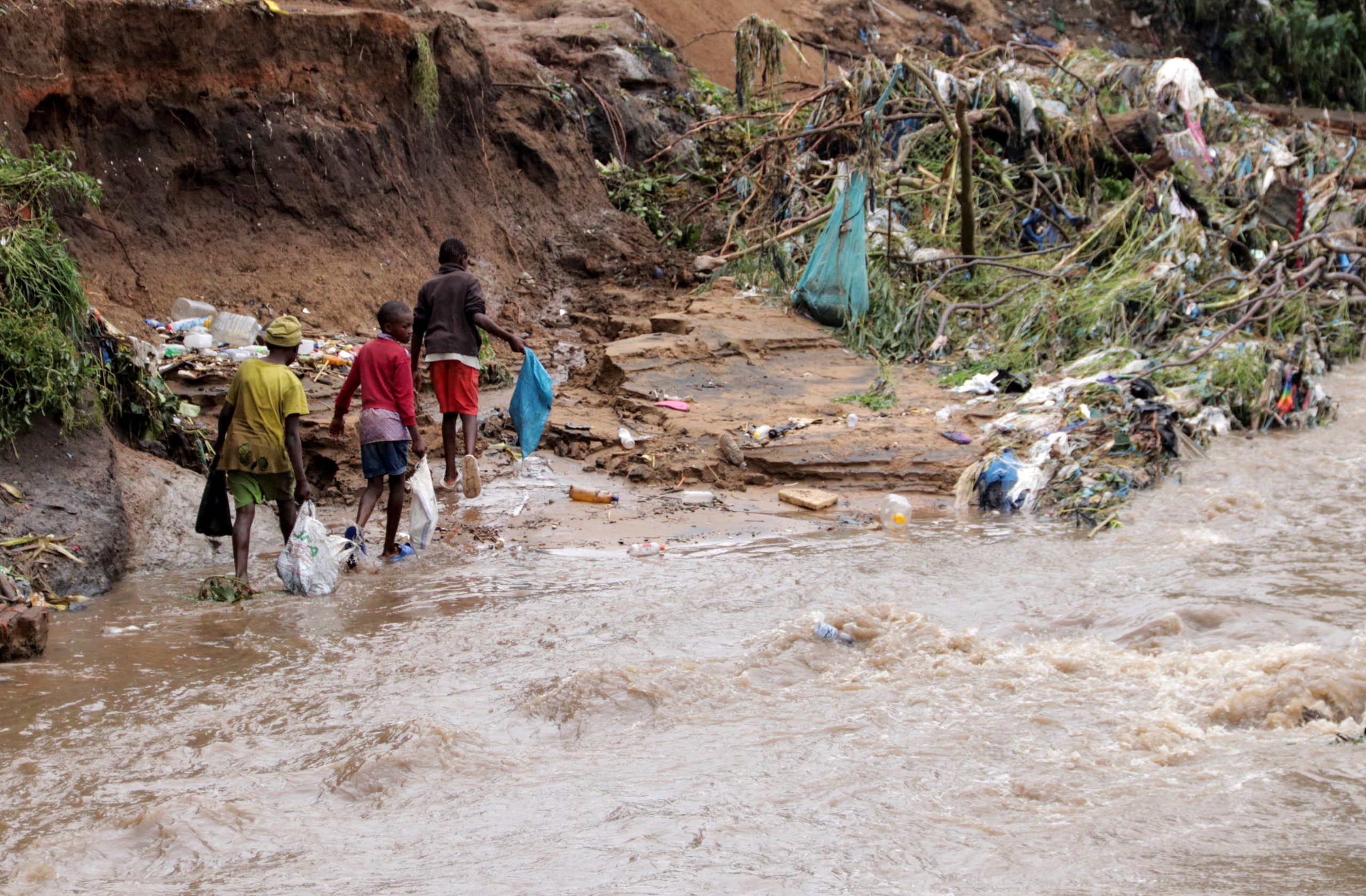
[elfsight_social_share_buttons id=”1″]
The last thing Lukia Akimu remembers is the surge of floodwater that hit her village near Mount Soche this week when Tropical Cyclone Freddy tore through southern Malawi.
The next thing she knew, she woke up in the hospital, her head wrapped in bandages and her neck in a brace.
“I saw a lot of water and some people being washed away. Then I do not know what happened. I do not know who brought me here,” the 35-year-old said from a bed in Queen Elizabeth hospital in the city of Blantyre.
It is not known whether any of her family members survived, a nurse told Reuters.
Tropical Cyclone Freddy has killed more than 400 people in Malawi, Mozambique, and Madagascar since it first made landfall in Africa in late February and circled back to hit the region for a second time over the weekend.
The storm has now dissipated, but heavy rains are expected to continue in parts of Malawi and will likely cause more floods around lakeshore areas, the ministry of natural resources and climate change said in a statement.
In Mozambique, some villages have been completely cut off since the cyclone made its second landfall on Saturday.
“We mobilized boats and other means to search and rescue people. There are lots of communities stranded,” Paulo Tomas, spokesperson for Mozambique’s disaster relief agency, said.
“After this time they are starving and in need of a proper meal and medical assistance.”
At least 53 people have died in Mozambique and 326 in Malawi since the weekend, according to government figures. The storm had already killed about 27 people in Madagascar and Mozambique before it lashed Mozambique a second time.
Malawi President Lazarus Chakwera visited Queen Elizabeth hospital on Thursday and prayed with flood victims. The storm injured at least 700 people in Malawi at the last count.
As rain continued to fall, some had to bury their dead.
In the southern village of Mtauchira, men stood in newly dug graves that had filled up like pools, scooping the water out with buckets so they could lower in the caskets.
While electricity was starting to come back in Malawi on Thursday, many places affected by the storm still had no running water, including in Blantyre, the second-biggest city.
Some Blantyre residents said they wished they had heeded warnings to flee before the cyclone hit, but they had not understood the gravity of the situation and now had nowhere to go.
“It was very difficult for people to really understand what was going on prior to this storm. Government sent out the messages but then nothing happened,” Blantyre resident Logasiano Misoya said. “I am lucky to be alive.”
Freddy is one of the longest-lasting tropical cyclones ever recorded and one of the deadliest in Africa in recent years.
Copyright 2023 Thomson/Reuters
